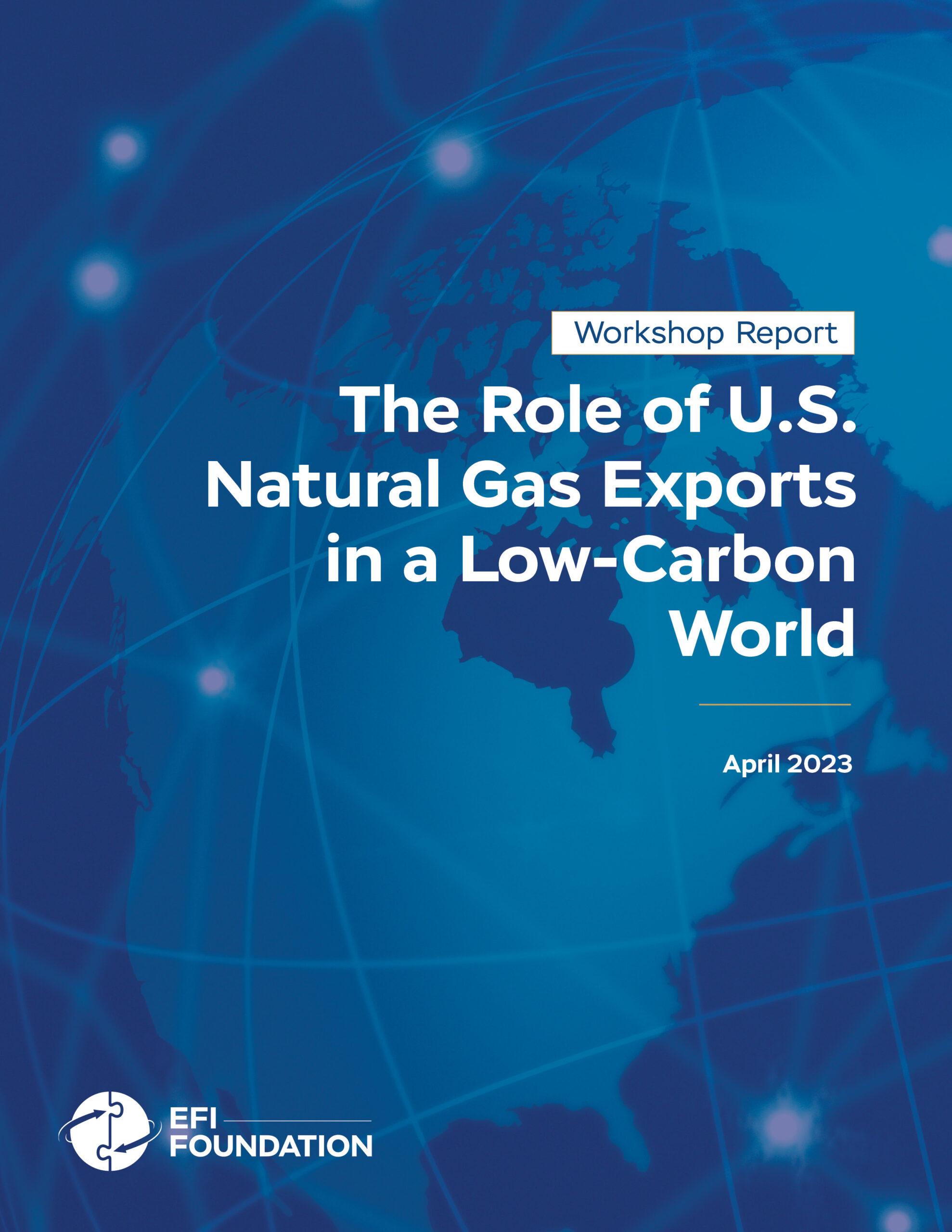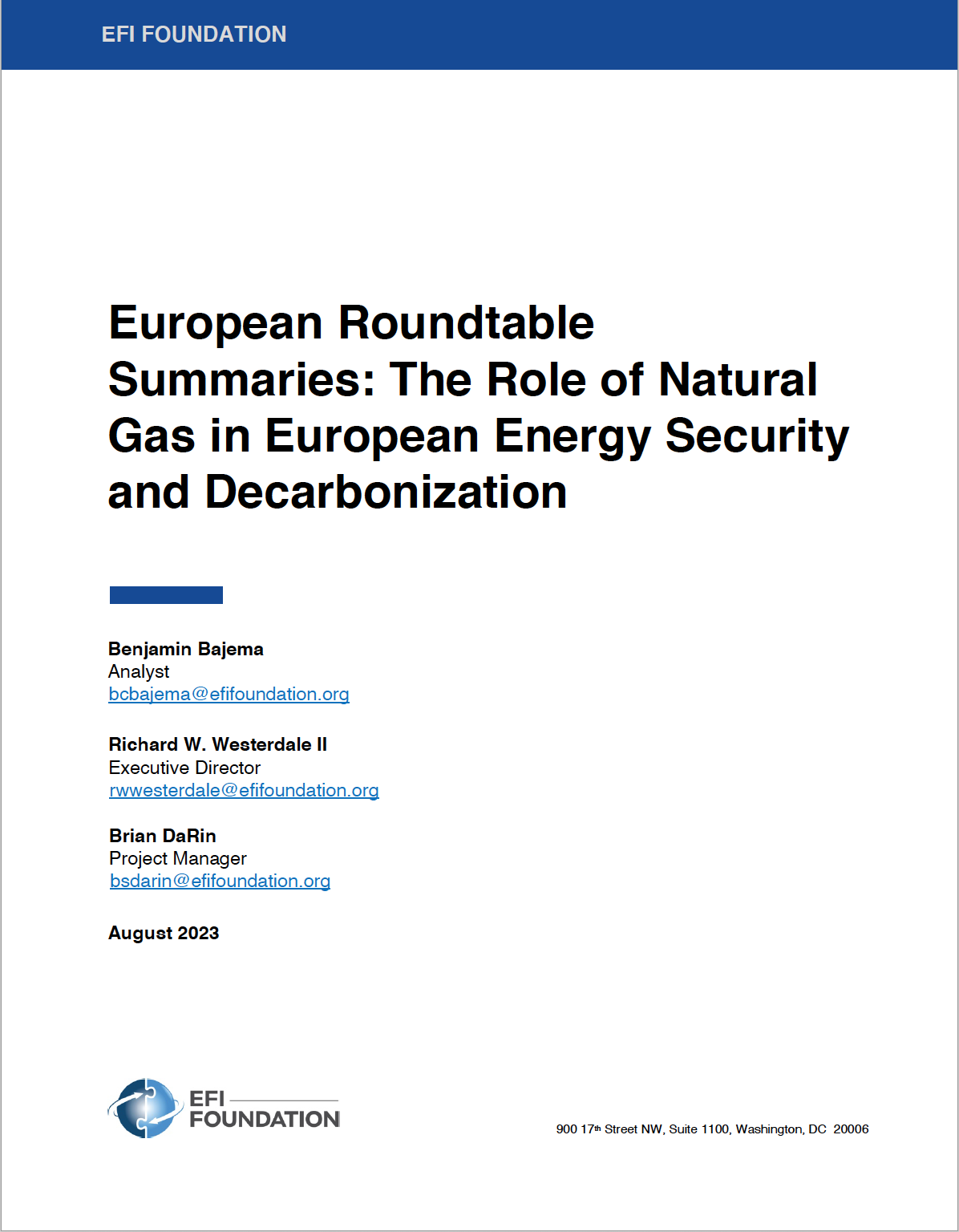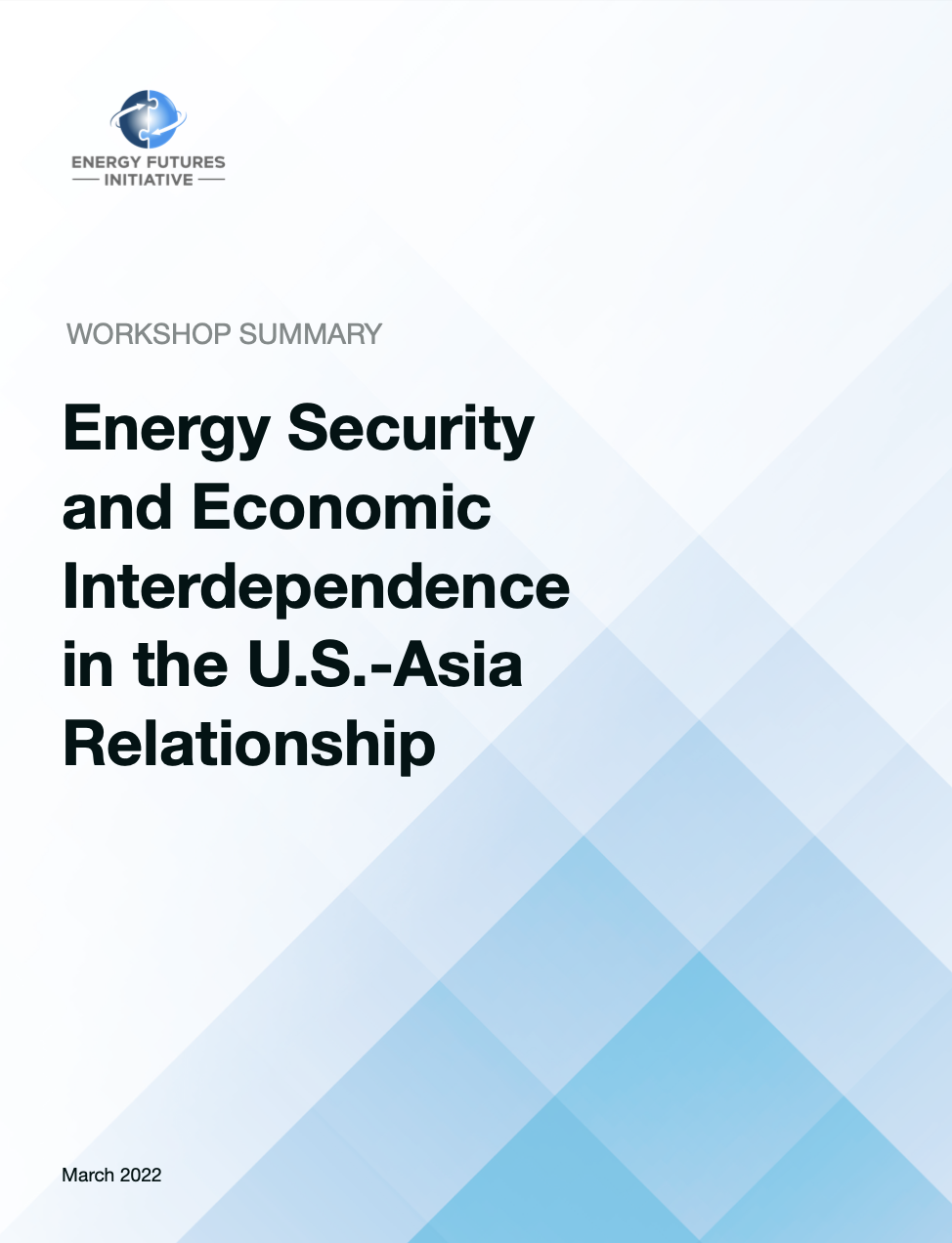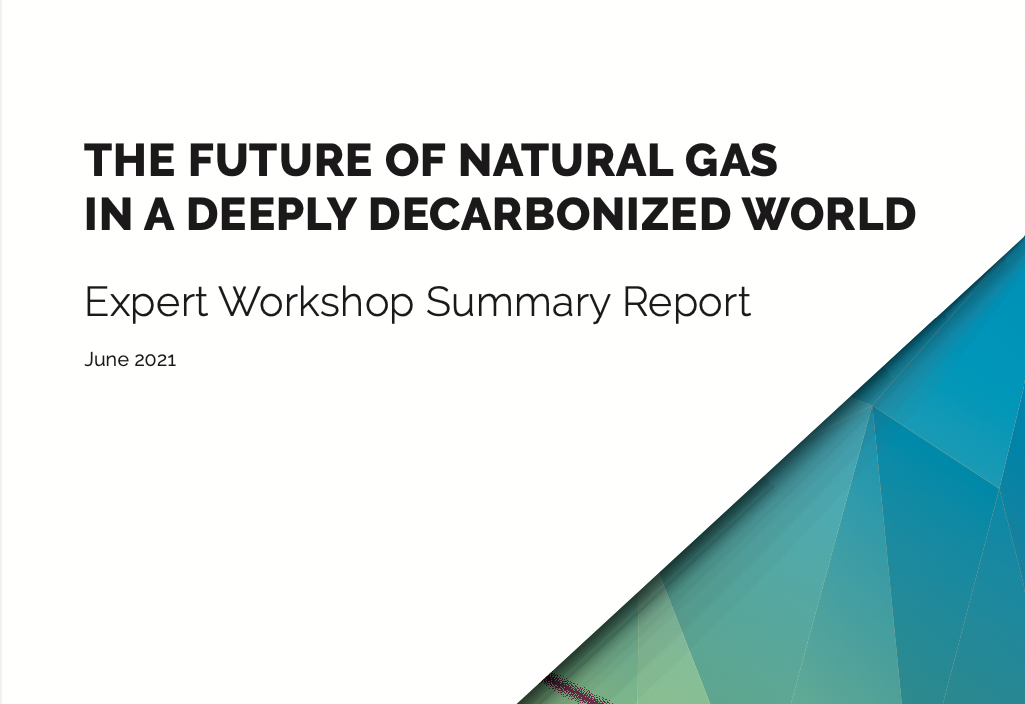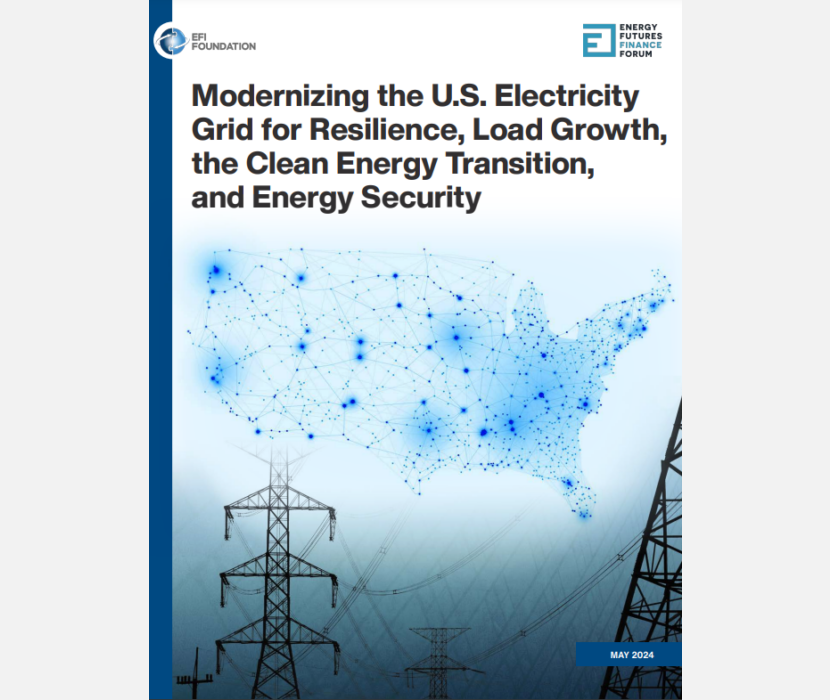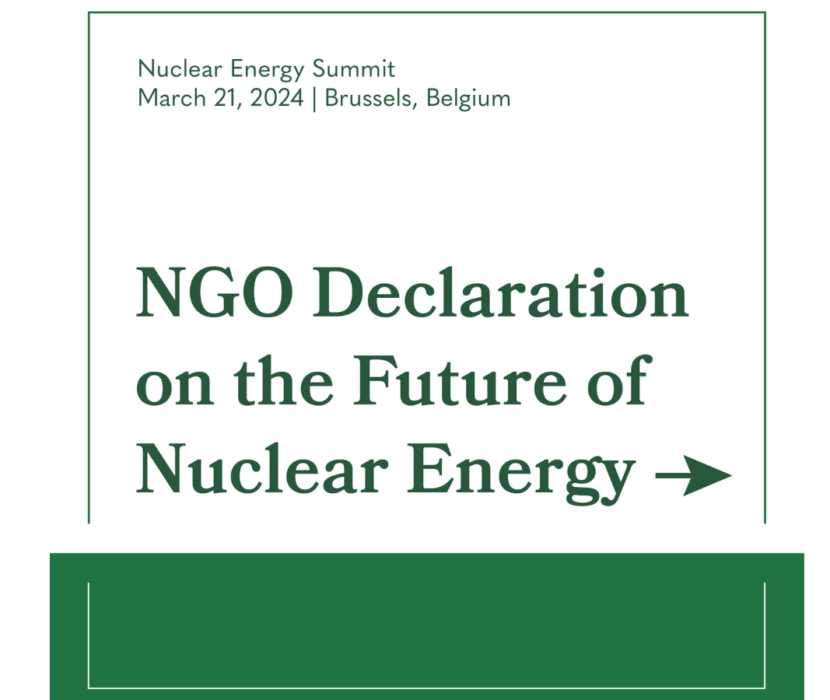Asia Roundtable Summary: The Importance of Natural Gas in Developed and Emerging Asia (October 2023) summarizes a roundtable that the EFI Foundation hosted along with the Institute of Energy Economics, Japan and the Economic Research Institute for ASEAN and East Asia on the role of natural gas in Asia’s energy transition. The roundtable—hosted on the margins of the Gastech 2023 conference in Singapore—brought together approximately 30 leaders from the natural gas industry, banking, and government. The purpose was to gain perspectives from across Asia regarding the challenges and opportunities for natural gas in the context of national-level energy and decarbonization strategies.
Russia’s invasion of Ukraine in early 2022 has impacted global energy security. Many Asian countries are net importers of liquefied natural gas (LNG) and are exposed to global market volatility. Globally, nations are tied to three basic energy needs: security, reliability, and affordability.
Nations in Asia vary in their approach to natural gas utilization. Northeast Asian nations prioritize security and reliability of supply. Southeast Asian nations also prioritize reliability but with a focus on affordability. For example, liquified natural gas will need to become more affordable for many Southeast Asian countries to use in place of coal for power generation. In contrast, India and China appear opportunistic in their use of natural gas and can adapt based on market conditions.
This summary report details the roundtables’ key takeaways:
- Natural gas demand in Asia is expected to be the main driver for global LNG markets in the coming decades.
- An affordable and reliable energy supply remains a top concern for many Asian countries.
- Natural gas supply is a key energy security concern for many Asian countries.
- It is critical to elevate the voices of low- and middle-income countries in Asia in the net-zero context.
- Natural gas can play an important role in industrial decarbonization.
- Coal-to-gas fuel switching lowers air pollution and decreases carbon emissions.
- Large-scale deployment of carbon capture and sequestration is critical for natural gas to be utilized while meeting decarbonization goals.
- Methane leakage is a critical issue that needs to be addressed in the net-zero context.
Each country approaches decarbonization, methane abatement, and the role of natural gas in the energy transition differently. The key question moving forward is how to harmonize decarbonization strategies with economic development and energy security. This report, along with other research, including summaries of roundtables and workshops held this year in Europe and the United States, will be part of a final report to be released in early 2024.
Related Content
(Share this post with others.)



